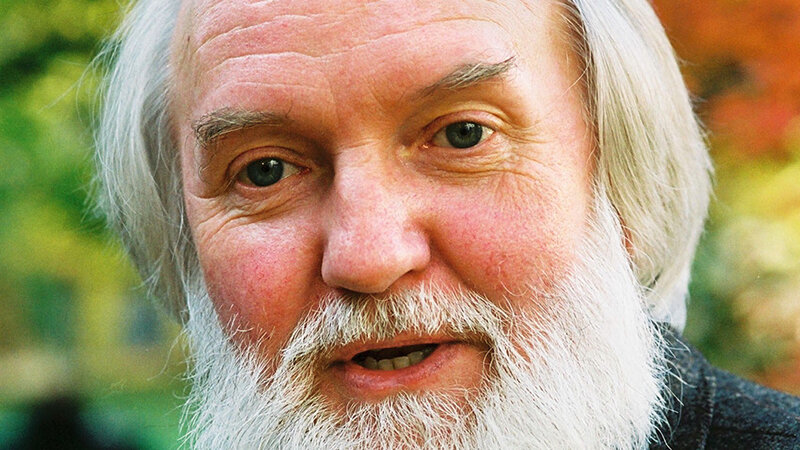TUCcurrent events
Linguist Konrad Ehlich was a guest at a symposium of the “Epistemicity” research group initiative of the Faculty of Humanities
Prof. Dr. Konrad Ehlich, linguist, co-founder of Functional Pragmatics, winner of the German Language Prize 2014, chairman of the German Association of Germanists from 2001 to 2004 and board member of the Institute for German as a Foreign Language / Transnational German Studies in Munich from 1992 to 2007. Photo: David Ausserhofer
The linguist Prof. Dr. Konrad Ehlich was a guest in Chemnitz on February 15 and 16, 2024 and, with the “Epistemicity” research initiative group of the Faculty of Philosophy at Chemnitz University of Technology (TUC), thought intensively about the prerequisites that determine how we know knowledge.
Winfried Thielmann, professor of German as a foreign and second language at the TUC and spokesman for the research network initiative, reported very enthusiastically: “Our group is concerned with such fundamental aspects of scientific thinking, action and ultimately knowledge that it is a real challenge for them Simply develop the appropriate concepts and names for things. And Konrad Ehlich is known to have an eye for the fundamentals. His comprehensive expertise on no less than 8,000 years of cultural, philosophical and, last but not least, linguistic history in the Near Eastern European region opened up to us such a comprehensive panorama of exactly the prerequisites that interest us in the epistemic group that we will have to think about some things for a long time .”
“With the concept of epistemicity we describe precisely those conditions under which in an individual science, such as literary studies, psychology or the sociology of knowledge, a piece of knowledge is accepted as truth at a certain point in time,” says Prof. Michael R. Müller, Holder of the Professorship for Visual Communication and Media Sociology at the TUC, continues: “And Ehlich’s comprehensive linguistic perspective on the cultural-historical traditions of talking about knowledge is extremely instructive for our entire group.” – “As Ehlich was able to impressively show, often the unspoken and almost inexpressible prerequisites that significantly shape what we say and think – and thus also our knowledge,” adds Bernadette Malinowski, Professor of Modern German and Comparative Literature at the TUC. “Because the unconscious decisions that are made in the structure of languages and the development of writing systems over the course of their history and thus determine their structure – whether tenses are differentiated in verbs or whether only consonants or also vowels are recorded in writing – these decisions provide the lines within which we can form ideas about the past and future and ultimately pass them on to the next generation in writing,” says Dr. Matthias Meiler, employee at the Professorship of German Linguistics, Semiotics and Multimodal Communication (Head: Prof. Dr. Ellen Fricke) at the TUC.
The symposium with Konrad Ehlich followed directly on from the working meeting with the scientific theorist and Leibniz Prize winner Jürgen Mittelstraß, who was a guest at the epistemicity group in November 2022. In addition to positioning the term within interdisciplinary scientific research, the group’s goal is to work towards an application for third-party funding in the long term.
In addition to those mentioned, other people are members of the Chemnitz group: Prof. Dr. Heidrun Friese (Professor of Intercultural Communication), Prof. Dr. Peter Ohler (former holder of the professorship in media psychology) and Prof. Dr. Günter Daniel Rey (Professorship of Psychology of Digital Learning Media).
(Authors: Prof. Dr. Winfried Thielmann, Dr. Matthias Meiler)
Mario Steinebach
22.02.2024
